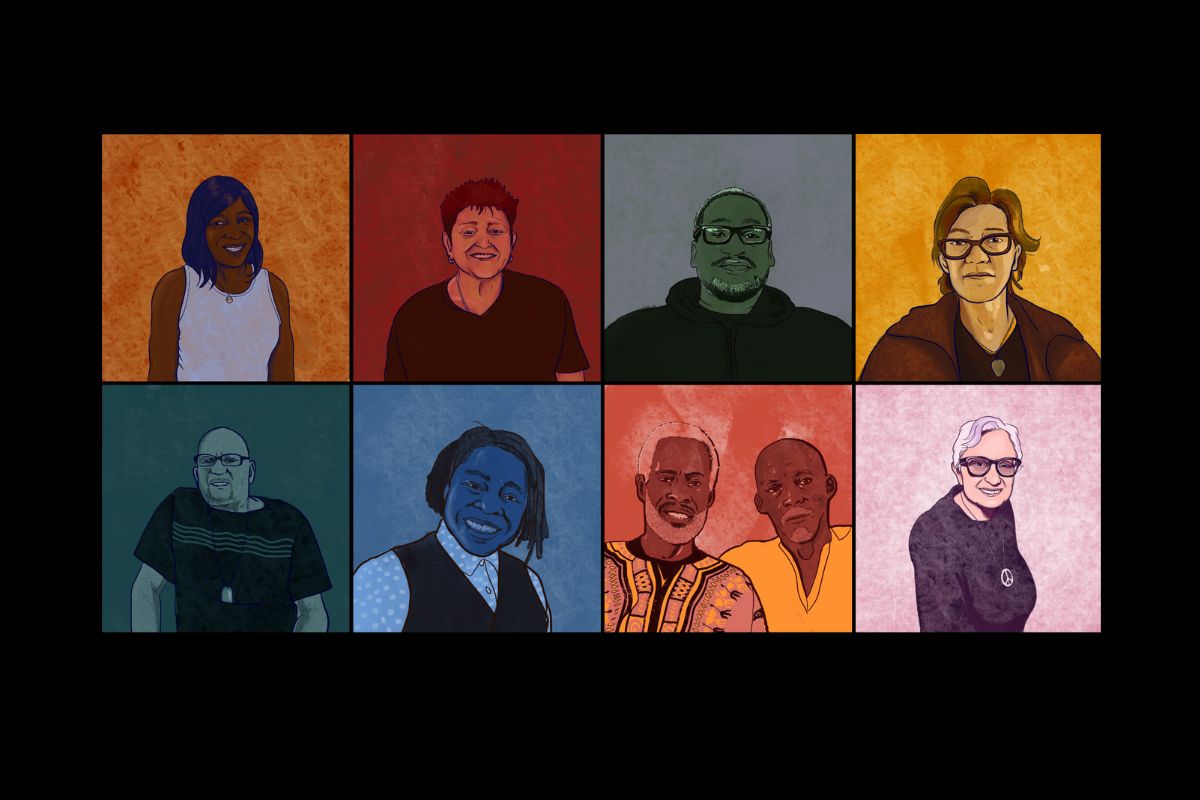Elena Botkin-Levy learned the importance of documenting oral history as a child through listening to the elders in her family “tell fabulous stories” and appreciating the feeling that would evoke. Elders are, after all, the keepers of unsuspected and fascinating tales that would otherwise go unknown if not for someone keeping a record.
This is exactly the work that Botkin-Levy now does through her company, GEMS Oral Histories. But it’s not her first foray as a storyteller. Botkin-Levy previously did work with outLoud, an audio storytelling program acquired by YR Media in 2014 that gives queer youth a platform to talk about issues affecting their lives. Beginning in 2008, she was the facilitator of an intergenerational storytelling project with queer youth at outLoud that featured the stories of LGBTQ+ elders, and the project had various cohorts through 2014.
“It was one of the most impactful projects that I had worked on,” she said. “As a queer person and just noticing how few opportunities there are both for intergenerational storytelling, but in particular, the documenting of queer elders—it just felt so important to focus on that.”
Fueled by that work with youth at outLoud, she began working on an independent project with no money other than her own. She put a call out to various local LGBTQ organizations to gain interest from LGBTQ+ people over 60 who’ve lived in the East Bay for over two decades and would be willing to have their stories documented.
She published the results of those efforts in 2019, a collection of oral stories by 10 elders, as part of a project called LGBTQ+ Stories of the East Bay. Some of those stories were later donated to the non-profit Bay Area Lesbian Archives for preservation.
But Botkin-Levy knew that a handful of stories wasn’t enough to adequately tell the history of LGBTQ+ communities in the East Bay, and she decided to expand on the project.
Last November, she launched another call-out, this time with funding from the city of Oakland’s Cultural Funding Grant Program, which allowed her to pay participants a stipend and hire queer youth as production assistants. She also enlisted the help of Joe Hawkins, executive director of the Oakland LGBTQ Community Center, and Oakland activist Kin Folkz of the Queer Healing Arts Center.
The result is a gorgeous collection of illustrations and audio stories titled Mapping Queer Oakland, featuring the voices of 10 LGBTQ+ elders—from all walks of life and different neighborhoods in North, East, and deep East Oakland—telling tales about a city that younger Oakland residents never had a chance to experience.
“Because everything is so expensive in Oakland, the story of gentrification impacts queer elders in a very particular kind of way,” said Botkin-Levy. “A lot of elders no longer live necessarily in Oakland but had spent many years here and have lots of stories and connections. So, [that] comes up as a piece of the story as well.”
Each participant was beautifully illustrated by artist Rami KD, and like the earlier project by Botkin-Levy, Mapping Queer Oakland includes audio clips, a written transcript, and a map pinpointing where each elder lived with fascinating stories of a long-gone and sometimes forgotten Oakland. The project also includes a limited-run printed zine, with a digital version also available on the project website.
The collection includes detailed vignettes of life as experienced by Oakland residents. Like Randy Jordan and Mali (Ernest Andrews) who met in 1983, and began dating when they reconnected at Cable’s Reef, a gay bar in Oakland where The Legionnaire Saloon is now, which closed in 2007; and Janet Halfin, who was born at Highland Hospital in 1956 and was the first “male-presenting person in modern dance at Oakland High School.”
“There’s really this narrative of tying stories to place and to Oakland,” Botkin-Levy said, “and really connecting the narratives that people have in telling those stories.”
Inspired by the initial crop of stories, Botkin-Levy hopes to pursue more funding that will allow her to continue collective stories about this important but under-documented part of Oakland history.
“What’s so important for me is thinking about how hard folks over 60 fought for dignity, legal support, and recognition. All the things that their lives entail are so different than today,” she said. “And, really wanting to honor their experience and stories.”
Correction: outLoud was an audio storytelling program where Botkin-Levy was the facilitator of the intergenerational storytelling project. Also, the spelling of the name of her company is in all caps.

